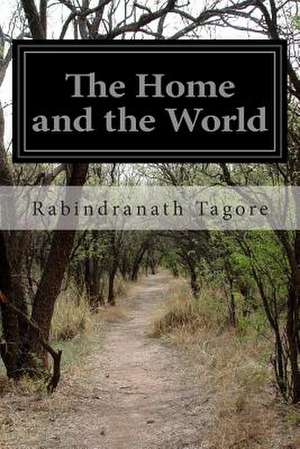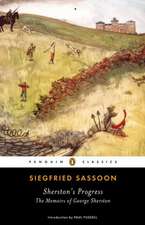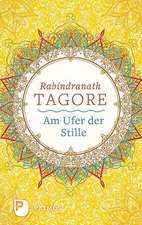The Home and the World
Autor Rabindranath Tagore Traducere de Surendranath Tagoreen Limba Engleză Paperback
Preț: 47.64 lei
Nou
Puncte Express: 71
Preț estimativ în valută:
9.12€ • 9.50$ • 7.55£
9.12€ • 9.50$ • 7.55£
Carte disponibilă
Livrare economică 13-27 martie
Preluare comenzi: 021 569.72.76
Specificații
ISBN-13: 9781503104136
ISBN-10: 1503104133
Pagini: 94
Dimensiuni: 152 x 229 x 5 mm
Greutate: 0.14 kg
Editura: CREATESPACE
ISBN-10: 1503104133
Pagini: 94
Dimensiuni: 152 x 229 x 5 mm
Greutate: 0.14 kg
Editura: CREATESPACE
Notă biografică
Rabindranath Tagore (1861-1941) was an Indian poet, composer, philosopher, and painter from Bengal. Born to a prominent Brahmo Samaj family, Tagore was raised mostly by servants following his mother¿s untimely death. His father, a leading philosopher and reformer, hosted countless artists and intellectuals at the family mansion in Calcutta, introducing his children to poets, philosophers, and musicians from a young age. Tagore avoided conventional education, instead reading voraciously and studying astronomy, science, Sanskrit, and classical Indian poetry. As a teenager, he began publishing poems and short stories in Bengali and Maithili. Following his father¿s wish for him to become a barrister, Tagore read law for a brief period at University College London, where he soon turned to studying the works of Shakespeare and Thomas Browne. In 1883, Tagore returned to India to marry and manage his ancestral estates. During this time, Tagore published his Manasi (1890) poems and met the folk poet Gagan Harkara, with whom he would work to compose popular songs. In 1901, having written countless poems, plays, and short stories, Tagore founded an ashram, but his work as a spiritual leader was tragically disrupted by the deaths of his wife and two of their children, followed by his father¿s death in 1905. In 1913, Tagore was awarded the Nobel Prize in Literature, making him the first lyricist and non-European to be awarded the distinction. Over the next several decades, Tagore wrote his influential novel The Home and the World (1916), toured dozens of countries, and advocated on behalf of Dalits and other oppressed peoples.
Cuprins
The Home and the WorldPreface
Chronology
Introduction by Anita Desai
Further Reading
Chronology
Introduction by Anita Desai
Further Reading
Chapter One:
Bimala's Story
Chapter Two:
Bimala's Story
Nikhil's Sotry
Sandip's Story
Chapter Three:
Bimala's Story
Sandip's Story
Chapter Four:
Nikhil's Story
Bimala's Story
Sandip's Story
Chapter Five:
Nikhil's Story
Bimala's Story
Nikhil's Story
Chapter Six:
Nikhil's Story
Sandip's Story
Chapter Seven:Sandip's Story
Chapter Eight:
Nikhil's Story
Bimala's Story
Chapter Nine:
Bimala's Story
Chapter Ten:
Nikhil's Story
Bimala's Story
Chapter Eleven:
Bimala's Story
Chapter Twelve:
Nikhil's Story
Bimala's Story
Additional Notes
Descriere
Descriere de la o altă ediție sau format:
Set on a Bengali noble's estate in 1908, this is both a love story and a novel of political awakening. The central character, Bimala, is torn between the duties owed to her husband, Nikhil, and the demands made on her by the radical leader, Sandip.
Set on a Bengali noble's estate in 1908, this is both a love story and a novel of political awakening. The central character, Bimala, is torn between the duties owed to her husband, Nikhil, and the demands made on her by the radical leader, Sandip.























